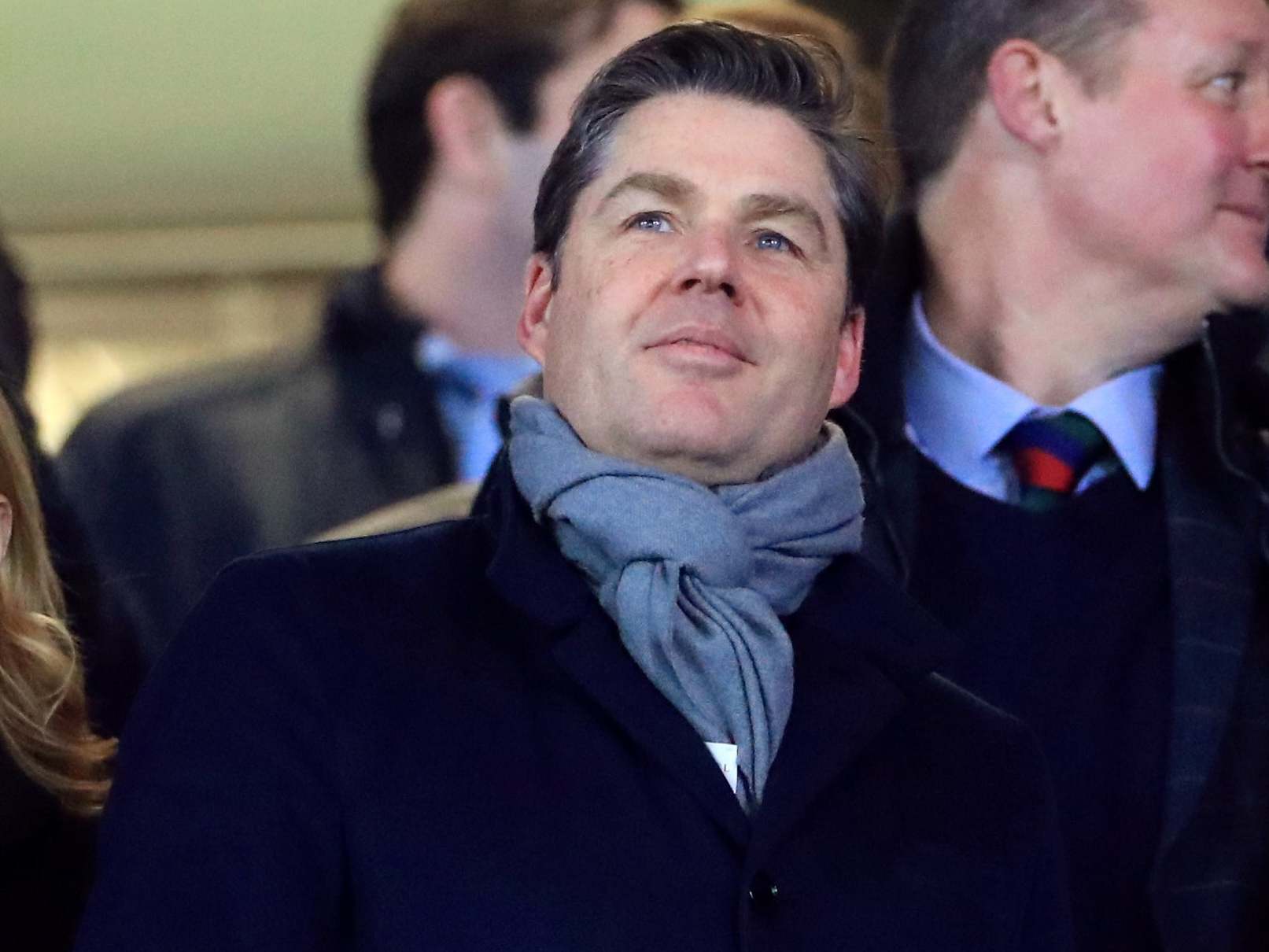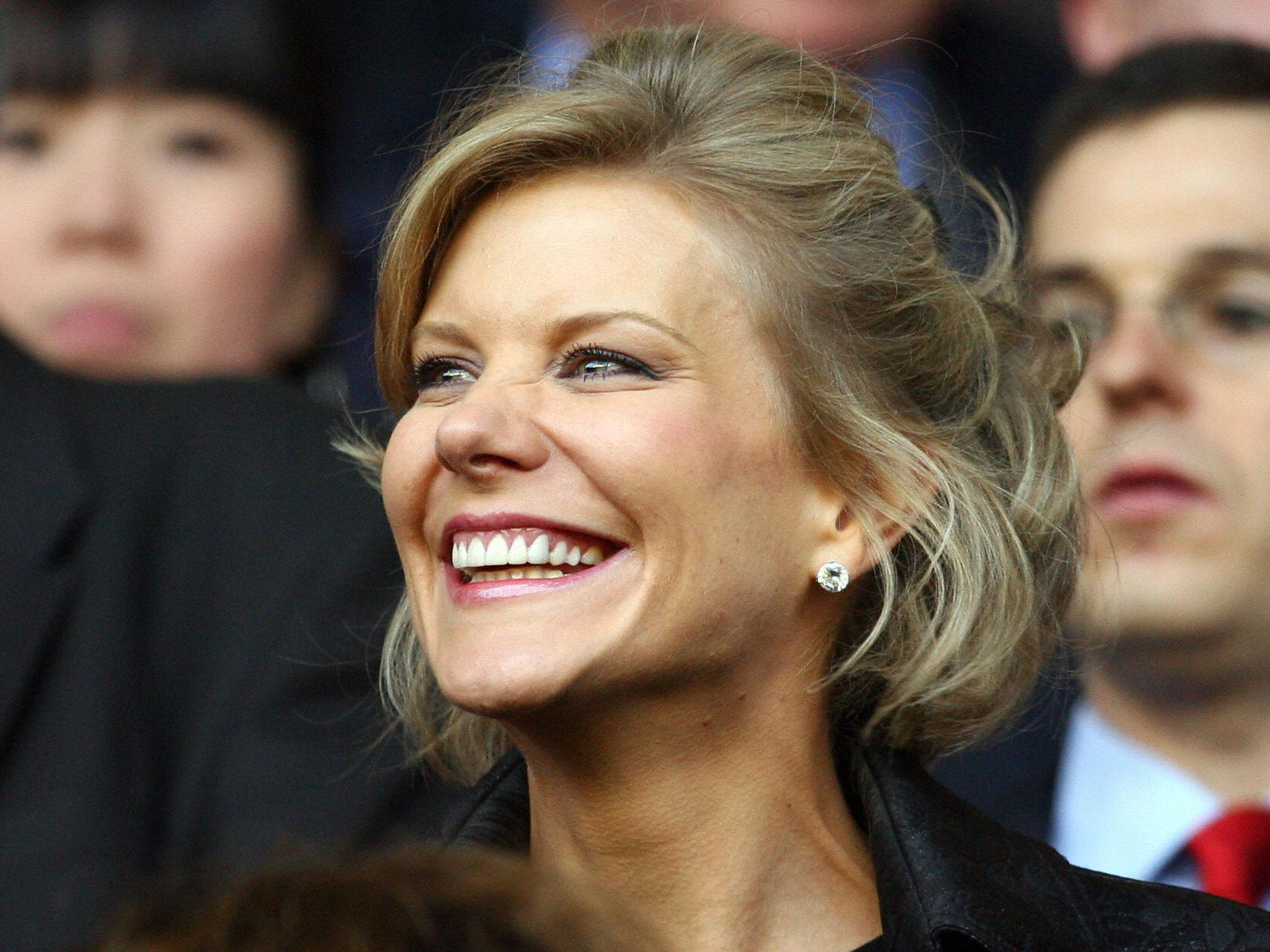All eyes on Richard Masters with how the world sees the Premier League at stake
The Premier League chief executive has inherited a tricky job amid the coronavirus pandemic

Your support helps us to tell the story
From reproductive rights to climate change to Big Tech, The Independent is on the ground when the story is developing. Whether it's investigating the financials of Elon Musk's pro-Trump PAC or producing our latest documentary, 'The A Word', which shines a light on the American women fighting for reproductive rights, we know how important it is to parse out the facts from the messaging.
At such a critical moment in US history, we need reporters on the ground. Your donation allows us to keep sending journalists to speak to both sides of the story.
The Independent is trusted by Americans across the entire political spectrum. And unlike many other quality news outlets, we choose not to lock Americans out of our reporting and analysis with paywalls. We believe quality journalism should be available to everyone, paid for by those who can afford it.
Your support makes all the difference.Over the last two days, the Premier League has done a lot of talking about how they’re going to be watched. The broadcasters have been in intensive negotiations about the TV schedule, and who gets to show what and when. Among the issues is whether the BBC get the first Friday night game, but given that it may be Tottenham Hotspur vs Manchester United means that’s simply a non-starter for the big satellite broadcasters.
The hope is that it will be announced by Thursday. There are meanwhile ongoing discussions about what that TV “product” will look like without fans. The Premier League has been encouraging inventive solutions, and held a conference call with the “big six” to discuss those most desired by broadcasters. Some were demanded. The big six, however, made clear they weren’t doing them.
You start to get a picture as to why the job of succeeding Richard Scudamore as Premier League chief executive was so hard to fill. And that, of course, was before all this.
Richard Masters has come into role that immediately became infinitely more difficult than anyone could have possibly imagined. It has been an incredibly challenging start.
Many candidates had already turned the job down because the growing power of the big six was threatening the very fabric of the Premier League.

That now seems so minor against Masters’s first two months, which have been consumed by more direct existential threats, both to the season and what the competition actually is. There was first of all the immediate unprecedented challenge of Covid-19. That has required painstaking diplomacy to get to this point, and obviously remains an ongoing problem. It will be quite a feat if 2019-20 is completed.
There is then the issue that has been greatly delayed as a consequence of the coronavirus crisis, and may correspondingly represent longer-term problems. That is the planned takeover of Newcastle United by Saudi Arabia’s sovereign Public Investment Fund.
It is already a moral problem because of the various human rights abuses the state is responsible for, as well as the murder of Jamal Khashoggi.
It sums up the kind of warped world elite sport exists in, however, that a far greater complication is instead something that threatens the lifeblood of the competition: the signal that carries it to so many TV screens around the world. That, of course, is the piracy problem represented by BeOutQ.
Football has therefore found itself caught in the middle of an economic war between Saudi Arabia and Qatar. BeOutQ – ruled by the World Trade Organisation to be run by the state – completely undermines Qatar company BeIn Sport’s ownership of the Premier League rights in the Middle East and north Africa region.
That may seem the driest of sentences, but its importance can’t be understated. It may well eventually affect who your club can buy and what players they can pay to stay.
“This is the biggest decision the Premier League will have have to make, and will affect its future,” one source says.
It’s also an almost no-win situation.

If the Premier League rejects the takeover – as morally should be the case – they leave themselves open to considerable legal challenges. It is why many initially felt the takeover would go through relatively smoothly, because the will was for any rejection to be totally watertight. That was always going to be close to impossible, especially without any “morality” clauses in the regulations. Rejection would also run the risk of dissent from many shareholders – the owners – who want to be able to sell at the highest price.
If the Premier League passes the takeover, however, they leave themselves open to much more than the fiercest criticism from human rights groups and questions over what it would actually take to reject a takeover.
They would be “mere” accusations of moral bankruptcy. This would also affect the bottom line, as well as what the Premier League is.
Because, above anything, it is a broadcasting leviathan. That is why they were so desperate for a media figure to replace Scudamore. This was the foundation of his success.
Scudamore maximised the competition’s earnings by reducing the scope of the Premier League itself as a body, and essentially just making it a selling point for the competition, and its lucrative rights. From there, he had a small team build highly valued relationships with broadcasters all over the world – and that applied to non-rights holders as much as rights holders, given the possibility of any of them becoming future rights holders.
Out of that personal touch, the Premier League became the best in the business at the more sophisticated end.
“It’s one of the most valuable leagues in the world because they protect their content so well,” one source says. “The takeover would be a big blow to the future of intellectual property and commercial rights.”
Sanctioning the deal could threaten scores of those relationships, as well as the business model the competition has been built on.
For their part, the Premier League have already tried to do as much on this as they can, and probably exhausted all avenues.
They have been battling this for three years, lobbied the US and UK governments, issued public statements, and attempted to bring legal action in Saudi Arabia nine times. They just couldn’t get any law firm in the country to take it on – which is telling in itself.
Such vigour has greatly assuaged international broadcasters, particularly BeIn Sport.
But the problem would be if the takeover is then sanctioned. Many would see it as also sanctioning the state responsible for piracy. That decision – expected mid-June – is why this takeover is still unlikely to be settled for some time. The process continues to unsettle many.
“I don’t think it would sit well, and could really impact future relationships,” the source says. “It affects trust. Rights holders invest millions in content protection, and if the end result is a body behind it owns a club, it’s hard to justify.
“You’ll already see anti-piracy clauses, and it could bring the value of deals down. What happens in the next weeks could well determine the next few years.”
Many, appropriately enough, will be watching. It could well affect how we all watch the Premier League moving forward and the product on the pitch.
Join our commenting forum
Join thought-provoking conversations, follow other Independent readers and see their replies
Comments